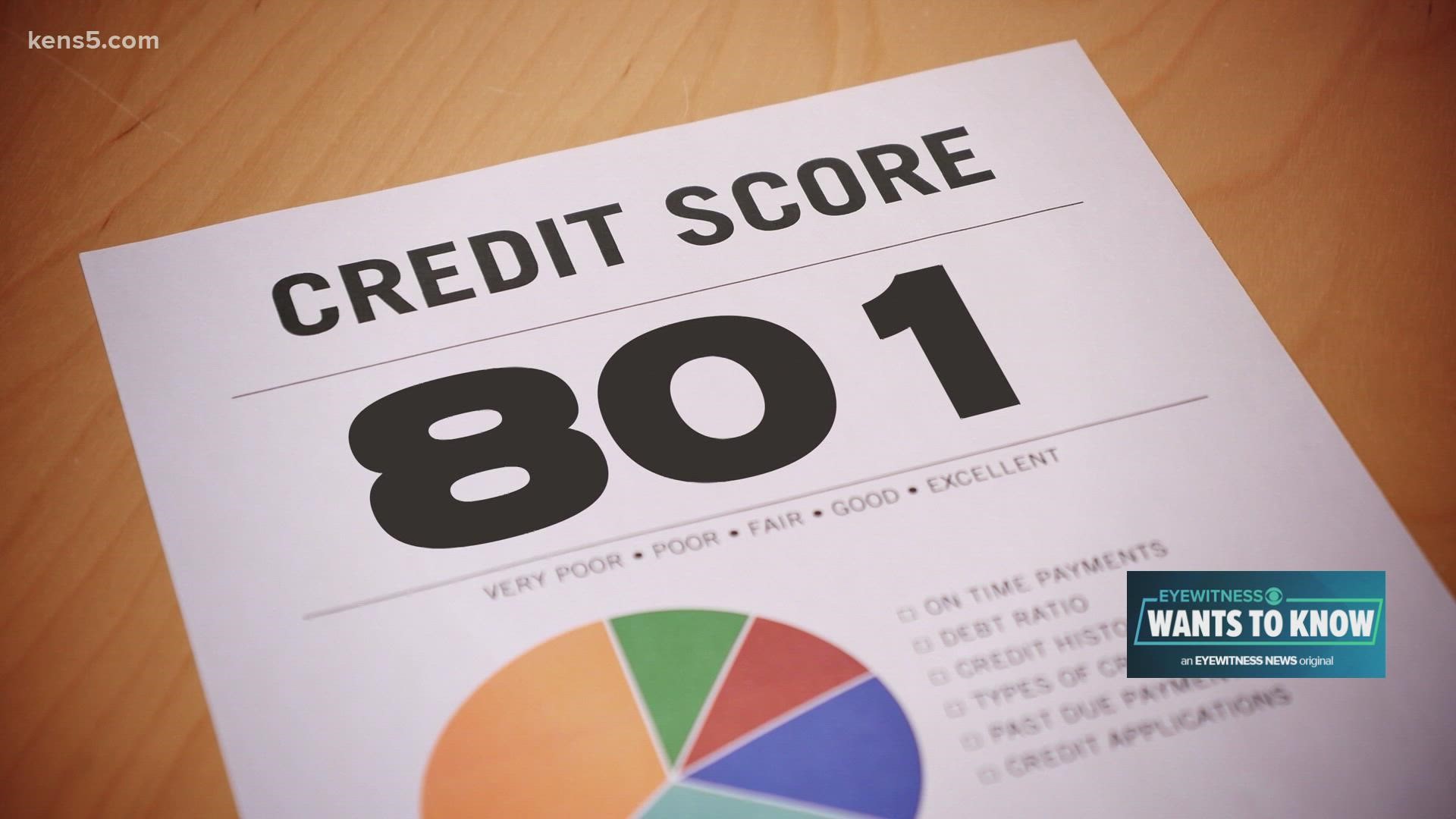SAN ANTONIO — Hard and soft credit checks both show the same information. The big difference is one has no effect on your credit score while the other will lower it.
A hard check happens when you apply for something like:
- Credit card
- Mortgage
- Auto loan
- Utilities
- Apartment
“With a hard credit check, people are generally checking your credit to determine whether you’re worthy to get a loan,” said Matt Schulz, chief credit analyst with LendingTree.
A hard check lowers your credit score by a few points, usually five or less, but too many hard checks in a short time can lower your credit score enough so you may not qualify for the lowest interest rate on a loan.
“If you are applying for a new mortgage or a car loan or a credit card and your credit is right on the edge of great versus very good or fair versus poor, five or ten points can make a really big difference,” Schulz said.
Yet, that should not stop you from shopping around for the best interest rate. That is because there is an exception when you have multiple credit checks for the same type of loan.
“If you’re shopping around for the same product within a short window of time, it’s only going to count once,” said Ted Rossman, credit card senior industry analyst with Bankrate. “It is a really good tip to shop around because then you get the best terms. This really applies more to car loans and mortgages.”
You generally have between 14 and 45 days to look at different lenders for the same type of loan.
Be careful because the exception does not apply to credit card applications.
“You don’t want to apply to a lot of credit cards at once,” said Rossman. “Each one of them will count individually. So applying to three or four credit cards all at once is a bad idea.”
How many hard credit checks are too many at one time that are not related to the same type of loan?
"I would say five within a two-year span is really the tipping point," Rossman said. "If you have more than that, that makes you look risky because then they (the lender) wonder why is that person running up all of these inquiries? Are they having hard times? Are they going to pay us back or are they just going to game the system?"
Hard credit checks can stay on your credit report for up to two years, but only affect your credit score for the first year said Rossman.
A soft credit check has no impact on your credit score. Examples are:
- Pre-approved credit offers
- Employment applications
Checking your own credit also will not lower your score, so make sure you look at it regularly.
“See where you stand,” Rossman said. “If there are any mistakes, you can get them corrected quickly.”
He recommends looking at your credit report two to three times a year. You can check your credit report weekly for free at AnnualCreditReport.com.
Another difference between hard and soft credit checks is you will need to give permission for a hard check. You will be asked to sign a credit report authorization form. That paperwork is a clue the lender is doing a hard credit check that will impact your credit score.
When it comes to applying for any sort of loan or credit, ask up front if the credit check is hard or soft.

